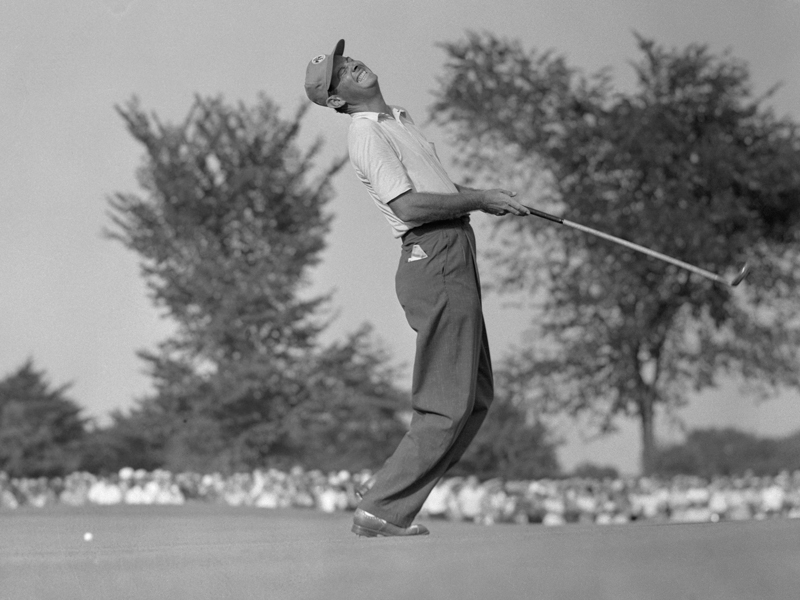Should Clubs Set Up Courses To Play Hard In Big events?
Make it a test or keep it simple?


GM regulars Fergus Bisset and Jeremy Ellwood debate whether the course should be playing tough for open comps or significant club tournaments.
Should Clubs Set Up Courses To Play Hard In Big events?
Yes says Fergus Bisset
Turning in a good score on a golf course that’s been set up for beginners is fine but handing in a competitive total on a layout that’s been fine-tuned to fully test one’s golfing ability is something to be proud of and to remember.
If courses aren’t set up to play hard for the big events, they never will be and neither members nor visitors will ever have the opportunity to see how they might cope when a layout is allowed to properly bare its teeth.
It’s fun to push oneself occasionally and it’s tough to improve without doing so.
A course should be friendly and playable for the majority of the year and should never be tricked up.
Get the Golf Monthly Newsletter
Subscribe to the Golf Monthly newsletter to stay up to date with all the latest tour news, equipment news, reviews, head-to-heads and buyer’s guides from our team of experienced experts.
But for big events such as the club championship or the men’s open, a track should be set up to be as challenging as possible without being unreasonable.
The great yardstick in a big tournament is to have participants leaving the course saying, “Man that was hard. But it was fair.”
To present a course in this fashion is the ultimate test of the greenkeeping team’s skill and judgement.
By occasionally pushing the boundaries, they will benefit from a greater understanding of the limits of their course.
Having this knowledge then allows those in charge to make decisions on what the set-up should be for any particular event.
For a charity day it should be as simple as pie, somewhere in the middle for the “spring meeting” and then max difficulty for the final round of the club champs.
We might not want to take on the fiendish Sudoku every time but the occasional one we battle to the end of delivers significantly more satisfaction than a nonchalant stroll through an easy one.
Should Clubs Set Up Courses To Play Hard In Big events?
No says Jeremy Ellwood
This argument isn’t about the U.S. Open or other top professional events, what we’re more concerned about here is whether or not clubs should make their courses as hard as possible for big events like open competitions or the bigger club trophy tournaments.
The answer has to be an emphatic no. Yes, we want to identify the best players, but will they not invariably rise to the top however the course is playing?
What we don’t need to do is embarrass and, perhaps more importantly, demotivate everyone else, for if we do, people will simply stop entering club events or open competitions where they know they won’t score within a dozen of their handicap.
Who really wants to play a half-decent approach and watch their ball slowly trickle back off the green or knock it in to 12 feet and struggle just to two-putt let alone make birdie?
I’ve played many men’s opens like that, and even on ‘official’ Golf Monthly visits we sometimes encounter considerably more than the unofficial standard of six hard pins!
People need to be encouraged rather than discouraged to enter more competitions, so let’s lean towards the easy side when setting up courses, particularly when it comes to green speed and pin positions.
I’d even advocate all clubs running an ‘Easiest Day’ competition, where the greens are a sensible speed, all pins are accessible and the rough modest.
Perhaps even push the tees as far forward as permitted and watch golfers have much more fun and maybe even make the odd birdie or two along the way.
That doesn’t sound so bad, does it?

Fergus is Golf Monthly's resident expert on the history of the game and has written extensively on that subject. He has also worked with Golf Monthly to produce a podcast series. Called 18 Majors: The Golf History Show it offers new and in-depth perspectives on some of the most important moments in golf's long history. You can find all the details about it here.
He is a golf obsessive and 1-handicapper. Growing up in the North East of Scotland, golf runs through his veins and his passion for the sport was bolstered during his time at St Andrews university studying history. He went on to earn a post graduate diploma from the London School of Journalism. Fergus has worked for Golf Monthly since 2004 and has written two books on the game; "Great Golf Debates" together with Jezz Ellwood of Golf Monthly and the history section of "The Ultimate Golf Book" together with Neil Tappin , also of Golf Monthly.
Fergus once shanked a ball from just over Granny Clark's Wynd on the 18th of the Old Course that struck the St Andrews Golf Club and rebounded into the Valley of Sin, from where he saved par. Who says there's no golfing god?
-
 Volvo China Open 2025 Picks, Odds And Predictions
Volvo China Open 2025 Picks, Odds And PredictionsFollowing a break for The Masters, the DP World Tour returns for the final two weeks of its Asian Swing and the Volvo China Open is the penultimate event
By Jonny Leighfield
-
 Rory McIlroy's Sports Psychologist Explains Why He 'Didn't Talk' To Bryson DeChambeau In Masters Final Round
Rory McIlroy's Sports Psychologist Explains Why He 'Didn't Talk' To Bryson DeChambeau In Masters Final RoundDeChambeau raised eyebrows at Augusta National when claiming that McIlroy wouldn't engage in conversation during the final round of The Masters
By Jonny Leighfield